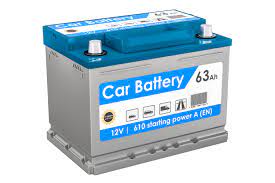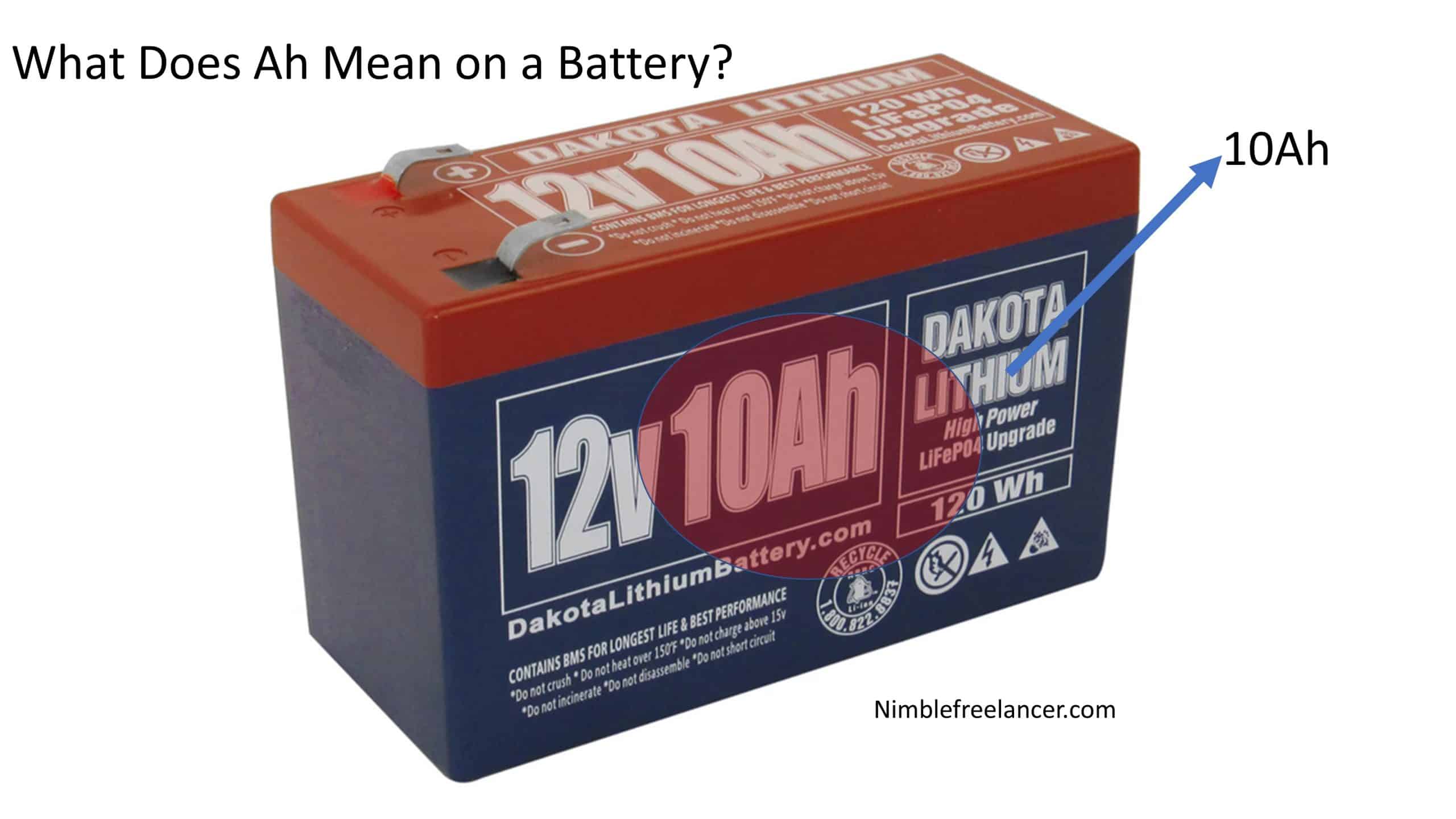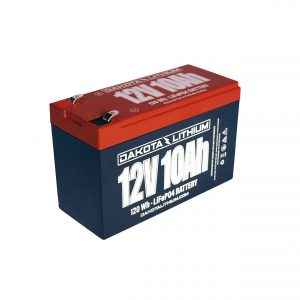Batteries are a critical part of our everyday lives. They are used in everything from cell phones to cars. Most people don’t think about batteries until they run out of power, but batteries are essential to our society.

Batteries come in all shapes and sizes, and there are different types for various purposes. The most common kind of Battery is the alkaline Battery, which is used in flashlights, radios, and toys.
Another type of Battery is lithium-ion batteries, which are used in laptops and cell phones. They are smaller and lighter than alkaline batteries and last longer. The most important thing to remember about batteries is that you should never mix different types of batteries. If you do, the batteries could explode.
You often buy batteries, but you never analyze the letters on them.
What does AH mean on the Battery?
The Amp-Hour (AH) specification measures battery capacity. Amp-hour is the rating that tells consumers how much amperage a battery can provide for precisely one hour. For example, a 10AH battery (or cell) can supply 10 Amps for one hour, while 100 amp hours can deliver one amp for 100 hours.

While an AH rating can be a helpful way to compare different batteries, it’s important to remember that it’s only an estimate. A battery’s current capacity will vary depending on its age, condition, and temperature.
This rating is essential when choosing the correct Battery for your needs. If you need a battery that can provide a lot of power quickly, you’ll want to look for a battery with a high AH rating. Conversely, if you need a battery that can supply power over a more extended period, you’ll want to choose one with a lower AH rating.
Now let us analyze in detail:
What is An AMP Hour?
An Ampere-hour (shortened Ah) is the energy charge measure in a battery that will permit one ampere of current to stream for 60 minutes. AMP hour describes the charge capacity of a battery or how much amperage can be delivered at a constant rate as the Battery is depleted over one hour. An ampere is a unit of the proportion of the electron stream’s pace or flow in an electrical conductor. One ampere of current represents one coulomb of electrical charge moving past a specific point in one second.

AMP-Hour example:
For example, a C/5 battery might safely provide 26.8 amp-hours. This means that it supplies 26.8 amps in 5 hours without dropping off. Meanwhile, the same Battery may safely provide 36 amp hours for 100 hours.
A 180-ah battery means that it can run for 18 hours with a 10A load or 180 hours with a 1A load.
A 125-ah battery means that if there is a 10A load, it can run for 12.5 hours.
100ah means a battery can deliver 1 amp of current at the rated voltage (12V) for 100 hours. Alternatively, two amps for 50 hours, four amps for 25 hours, or ten amps for 10 hours.
According to this, if there is a 10A load:
- 150Ah Battery can run for 15 Hours.
- 180Ah Battery can run for 18 Hours.
- 200Ah Battery can run for 20 Hours.
mAH Battery
The mAh capacity rating refers to the storage capacity available for a particular battery. A milliampere-hour (mAh) is 1,000th of an Ah and is ordinarily utilized as a proportion of charge in PC batteries. The mAh shows how long the PC will work on its Battery without re-energizing it. The clock would then represent 60 minutes, presenting a full hour and a quarter measured by an electric bulb. While the difference is slight, it is perceptible and gives rise to an apparent hour slightly longer than the actual one. When an atomic clock measures time, the hours and minutes are seconds. It thus requires a very sensitive nuclear clock to measure the difference, which can be compared to a cheap digital watch.
The amount of electricity used per one billion British thermal units (BTU) of heating or cooling. The US government states that 1 kilowatt-hour of electricity equals 29 BTU per BTU of heat, and 1 kilowatt-hour of electricity equals 8.35 BTU per BTU of heat. An electric household heater burns heat in the electric meter’s circuit. When more power is available than heat flowing through the electric meter, the electric heater is turned on, raising the temperature.
Let us give one example related to cars:
Car battery amp hours
An average car battery has a capacity of about 70 amp-hours, specified at a current of 3.5 amps. This means that this Battery could continuously supply a current of 3.5 amps to a load of 20 hours (70 amp-hours / 3.5 amps).
The Battery is one of the most critical components when powering your car. The Battery’s amp hours rating tells you how much power it can deliver. This rating is essential to know when considering a new battery for your car or determining if your current Battery is up to running all the electronics in your vehicle.
Most batteries sold today have an amp-hour rating between 40 and 55. If you’re looking for a battery that can handle many power-hungry gadgets, you may want to consider a model with a higher rating. Remember that the higher the amp-hour rating, the larger and heavier the Battery will be.
When shopping for a new car battery, you must match the size and type of Battery to your vehicle. Consult your car’s owner’s manual or speak with a technician to determine what Battery you need.
Conclusion
Amp Hour (AH) is a term used to measure a battery’s capacity. The higher the AH rating, the more capacity the Battery has. Batteries with a high AH rating are essential for applications that require a lot of power, such as electric vehicles and large-scale energy storage.
- Facebook Ads to Get Followers! - December 27, 2024
- ClickUp vs. Slack - December 20, 2024
- Mastering E-Commerce Analytics: A Blueprint for Success






